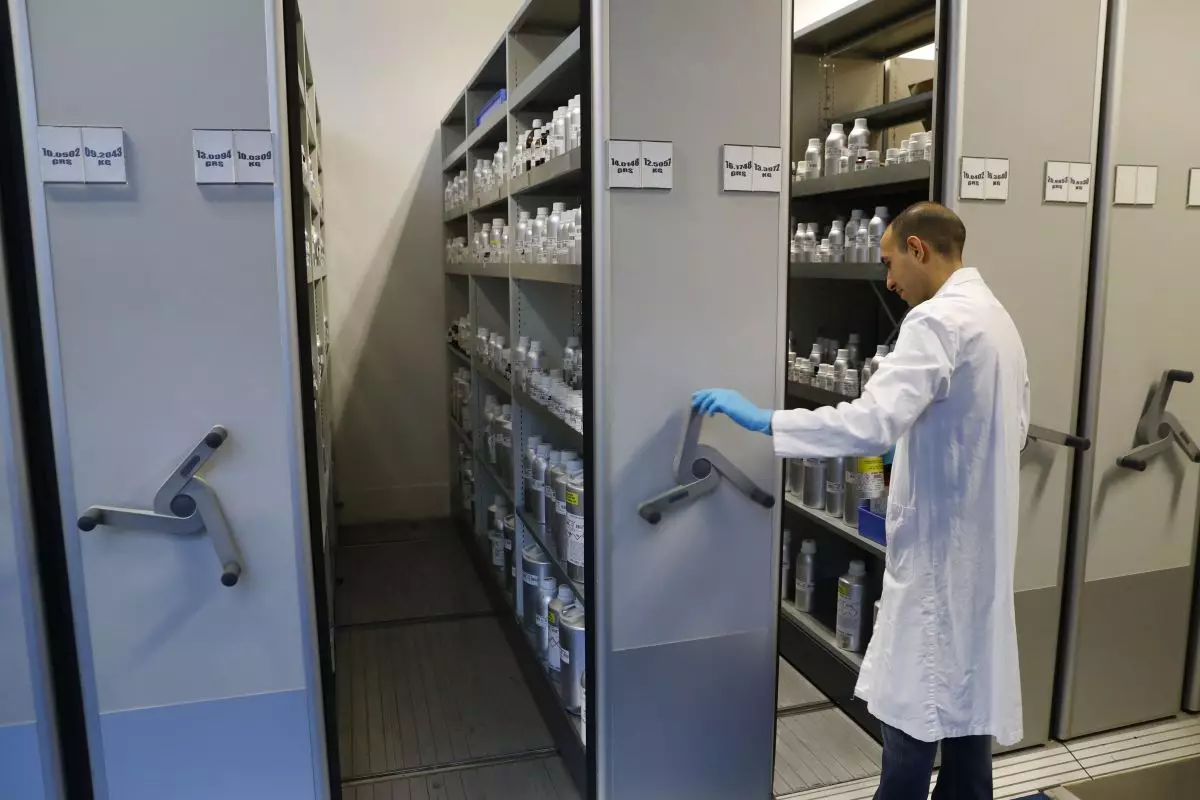In recent years, advancements in artificial intelligence (AI) have permeated various industries, with the field of scientific research reflecting a notable uptick in the adoption of generative AI technologies. This shift is particularly significant in sectors that emphasize trial and error, such as chemistry and pharmaceuticals. Researchers are continually tasked with the challenge of devising new compounds and solutions, and AI presents an invaluable ally capable of streamlining these cumbersome processes. One startup leading this charge is Albert Invent, which has designed an innovative AI platform explicitly tailored to refine the complexities of molecular chemistry.
Albert Invent has emerged as a compelling player in the landscape of chemical research technology. The brainchild of founders who initially ventured into the 3D printing domain, Albert Invent is centered around enhancing the efficiency of chemical experimentation. Their flagship platform, Albert Breakthrough, leverages an extensive database sourced from over 15 million chemical structures gathered from public information. By synthesizing structured data alongside proprietary AI models, Albert Invent aims to tackle traditional challenges faced by chemical companies. Their technology promises to expedite the development of new products while ensuring a higher level of precision in toxicology predictions, effectively outperforming conventional industry models.
The startup’s recent $22.5 million Series A funding round, led by Coatue Management, signals a robust endorsement from the investment community. Industry giants like Chemours and Henkel are among its clientele, a testament to the platform’s credibility and potential impact. Albert Invent’s CEO, Nick Talken, envisions a transformative future for chemical sciences, akin to what data scientists have enjoyed in their respective fields. This perspective underscores a growing recognition of AI’s capability to revolutionize complex scientific inquiries, particularly in the quest for sustainability and advanced therapeutic solutions.
Central to Albert Breakthrough’s function is its ability to utilize domain-specific data rather than relying solely on generic datasets. Talken asserts that in the chemical industry, conventional internet data is insufficient for optimal AI training; thus, the platform’s unique foundation in highly specialized chemical data is critical. By harnessing the power of this targeted information, Albert Breakthrough offers unprecedented accuracy in chemical modeling and predictions, which is vital for researchers aiming to innovate in product development.
The integration of cutting-edge AI techniques comes as a significant leap forward compared to earlier models. Talken has alluded to the company’s use of foundational models—some developed independently, while others leverage existing AI frameworks for auxiliary functions such as chatbots. This balance of proprietary knowledge mixed with broader AI capabilities ensures that Albert Invent remains at the forefront of technological advancements.
Albert Invent’s origins can be traced back to the founders’ time at Henkel Corporation, where they cultivated a dedicated team focused on addressing pressing problems in chemistry. This nurturing environment fostered the growth of innovative solutions before leading to Alfred Invent’s spin-off as a standalone entity. Such a seamless transition emphasizes the founders’ commitment to driving progress in chemical research through technology.
With significant support from investors like TCV and Index Ventures, Albert Invent’s journey is just beginning. Industry experts, including Johan Landfors, CTO of Nouryon, highlight the platform’s integral role in shaping product development within their organizations. The enthusiasm generated by Albert Invent presents opportunities for further advancements across the sector.
As artificial intelligence continues to develop and integrate within scientific applications, the future of chemistry looks bright. Platforms like Albert Breakthrough have the potential to unlock new levels of efficiency, reduce time-to-market for new products, and ultimately contribute to solving society’s most pressing challenges. With the growing synergy between AI technologies and chemical research, the next decade could herald unprecedented innovations that redefine our understanding of material sciences and their applications in everyday life. Albert Invent is not just a participant in this revolution; it is poised to lead the charge. As such, it serves as a powerful reminder of how technology and science can intersect to create remarkable solutions for a more sustainable world.

